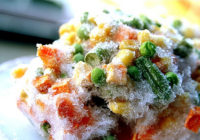124 lbs CO2 Per Year
$0 Savings Per Year
Short Description
Compost Yard Trimmings & Food Waste!
Long Description
Yard trimmings and food waste make up about 26% of the stuff that goes into our landfills. That’s a lot of waste. No wonder we need Odour Control for our landfills since they get so full so quickly. Obviously, there are a few things that can’t be recycled, however, it makes sense to start using things that don’t just end up in a landfill and can instead be recycled. You should try and make sure that you recycle as much as you can, don’t be lazy and just chuck it in the bin. You should also consider using companies like skip bin hire at Essendon to remove this waste with other garbage, this waste could instead be made into useful, environmentally beneficial compost! Composting has many environmental – and economic — benefits!
Composting saves money on trash bags and garden fertilizer! Use it in your garden and mix with regular dirt to pot your plants!
Composting saves energy and landfill space by transforming food scraps and yard trimmings from waste into a usable product right at home.
Compost enriches soil and can clean up contaminated soil.
What it costs:
As little as $10 to construct your own simple chicken-wire composting bin.
Composting is Easy!
Create your bin: A compost pile can be set up in a corner of the yard with few supplies. Choose a level spot about 3 to 5 feet in diameter near a water source and preferably out of direct sunlight. Clear the area of sod and grass. Close in your circle with an easy chicken wire fence, you can seal your circle by reusing household twist ties! When building a composting bin, such as with chicken wire, be sure to leave enough space for air to reach the pile.
Start filling your bin: Start the pile with a 4-inch layer of leaves, loose soil, or other coarse yard trimmings. Many foods can be composted, including vegetable trimmings, egg shells, coffee grounds with filters, and tea bags. In addition to leaves, grass, and yard clippings, vacuum cleaner lint, wool and cotton rags, sawdust, shredded newspaper, and fireplace ashes can be composted. Composting meats, dairy foods, fats, oil, or grease is not recommended because they can attract pests. If you do get pests in your home and you aren’t able to get rid of them yourself, you must contact professionals like Economy Exterminators, so you can get rid of this problem without worry that they may return.
When composting food scraps, mix them with yard trimmings when adding them to the pile. Alfalfa meal or clean cat litter may be added to the pile to absorb odors. In dry weather, sprinkle water on the pile, but don’t get it too soggy. Turn the pile every few weeks with a shovel or pitchfork to circulate air and distribute moisture evenly. Don’t be surprised by the heat of the pile, or if you see worms–both of these elements are part of the decomposition process!
Use your compost! The compost is should be done in 3 to 6 months. You will know it is ready for use when it becomes dark, crumbly, and mostly uniform in texture. Spread it in the garden, flower beds, or under shrubbery. The compost can also be used as potting soil.










